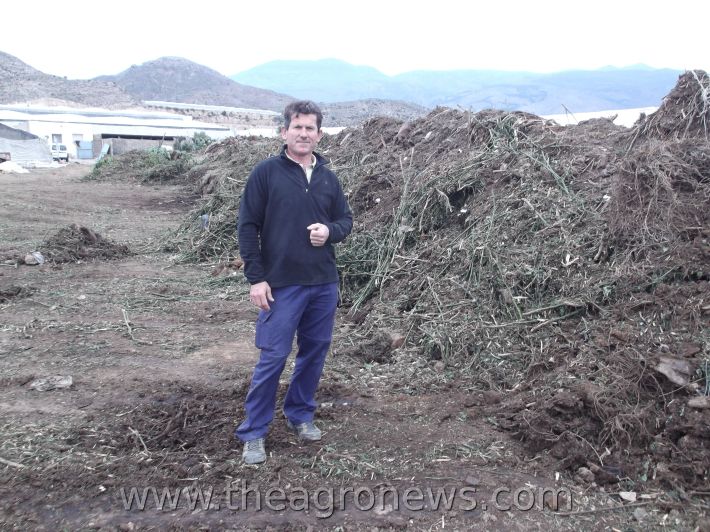A día de hoy parece obvio que sí, pero, ¿qué ocurriría si los agricultores aprendiesen a hacer autocompostaje o a triturar los restos vegetales dentro de las propias fincas? Pues que el negocio que hay en torno a los centros de tratamiento de residuos desaparecería. Ya no vendrían en ese caso, como caídos del cielo, ni coreanos, ni checos, ni alemanes, ni etc, etc, etc, grandes ‘iluminados’ que hasta ahora han ido aterrizando periódicamente en la provincia de Almería prometiendo ‘maná para todos’, a cambio de dar cobijo a sus proyectos faraónicos. Todos ellos, por cierto, fracasados. Por algo será.
Today it seems obvious that they are, but what would happen if farmers learnt to do self-composting plant or to crush vegetable debris within the own farms? Well, that the business around waste treatment centers would disappear. In this case, they would no longer appear out of the blue, not Korean, Czechs, Germans, nor etc., etc., etc., great ‘enlightened’ people that so far have been landing regularly in the province of Almeria promising ‘manna for everybody, in exchange for embracing their hideously projects. All of them, of course, failed. There must be a reason.
Tampoco está de más preguntarse ahora por las subvenciones recibidas por algunas empresas que anunciaron biogás y otras bondades. Ahora nadie se acuerda de ese dinero ni de su uso.
Nor it is needless to ask oneself now for the subsidies received by some companies that announced biogas and other goodness. Now nobody remembers that money nor its use.
Pero hace solo unos días en la finca experimental que la Universidad de Almería comparte con Anecoop han empezado a hacerse las cosas de otro modo. En las 6 hectáreas de esta finca se han comenzado a picar todos los cultivos, planta, frutos e incluso guitas. Esto se llama biodesinfección del suelo. Los encargados de esta iniciativa me comentan que ahorrarán 9.000 euros por no llevar estos desechos a una planta, ahorrarán casi todo el abono de síntesis y también ahorrarán en agua de riego entre un 30% y un 40%, ya que con la biodesinfección el suelo se hace más poroso. La cooperativa Balermamar se ha interesado por este modus operandi y el próximo 9 de mayo, a las 21,00 horas en esta cooperativa de El Ejido, un conocido catedrático de la UAL explicará a los agricultores estas técnicas más eficientes.
But just a few days ago, in the experimental farm that the University of Almeria shares with Anecoop, they have started to do things in a different way In the 6 hectares of this farm, they have begun to crush all the crops, plants, fruits and even twines. This is called soil biodesinfection. The managers of this initiative tell me that they will save 9,000 euros for not bringing this waste to a plant, they will save almost all the chemical fertilizer and they will also save irrigation water, between 30% and 40%, since the soil becomes more porous with the biodesinfection. The Balermamar cooperative has been interested in this modus operandi and next 9 May at 21.00 hours in this cooperative of El Ejido, a renowned professor of the UAL (University of Almeria) will explain these more efficient techniques to the farmers.
Posdata. La nueva normativa de gestión de restos vegetales de Andalucía permite a los productores reciclar sus propios residuos. Javier Valverde es un ejemplo. Este agricultor ejidense posa en la imagen junto a un montículo de desechos agrícolas, que convertirá en compost para volver a abonar su invernadero. De este modo, lo que sale de la tierra vuelve a ella. El ciclo de la naturaleza se cierra. Agricultura sostenible.
PostScript. The new management rules of vegetable debris from Andalusia allow producers to recycle their own waste. Javier Valverde is an example. This farmer from el Ejido poses on the image next to a heap of agricultural waste, which will turn into compost to fertilize his greenhouse again. Thus, what comes out of the earth returns to it. The cycle of nature closes. Sustainable agriculture.











 José Antonio Arcos
José Antonio Arcos
 Ana Rubio
Ana Rubio